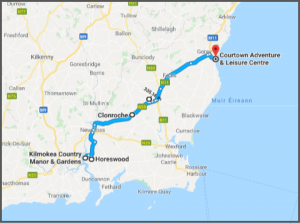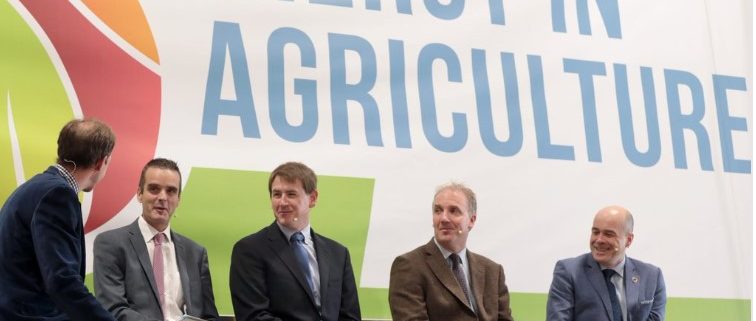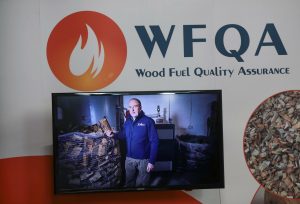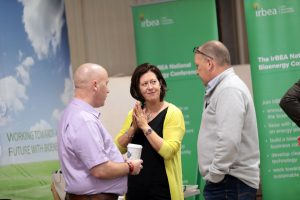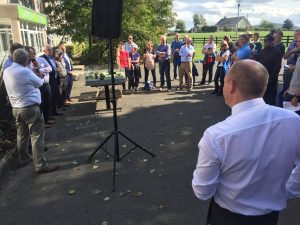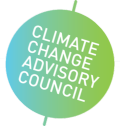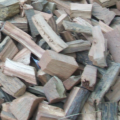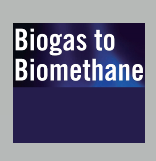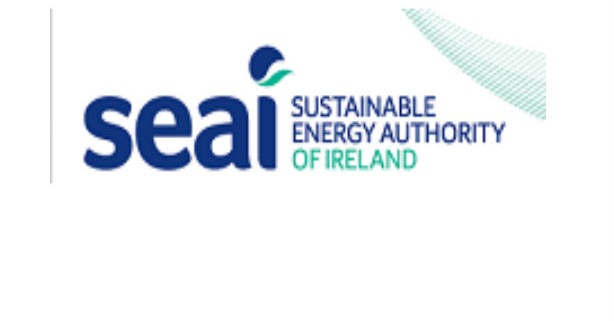Statement from Irish Bioenergy Association
The EU has upped the renewables target to 32% overall, and this gives plenty of incentive for progress in electricity, heat and transport, which is good. For the first time all solid biomass will have sustainability criteria requirements regardless of source, this will ensure the long-term viability and sustainability of biomass as a central renewable fuel. Also of note is the minimum greenhouse gas reduction requirements of 70% which will be applied from 2021 onwards, rising to 80% in 2026. The new regulations also set minimum efficiency levels for biomass power plants.
The new transport sector sub-target for renewables is set at 14%, not a huge step-up from the current 2020 target of 10%. Double-counting will be allowed for advanced biofuels. This means one can use one litre of renewable fuel and count it as two. This means the target can be met numerically by achieving 7% renewables, with the consequence that another 7% of fossil derived liquid fuels need not be replaced in meeting the target – which you could argue defeats the purpose.
As for the optional 7%, this is reserved for crop-based biofuels like ethanol and biodiesel from grain, beet and rapeseed. But a country cannot exceed the amount of this fuel that it was using in 2020, so if your country was at 4% crop-biofuels in 2020 it cannot go to 7% in 2030. This may be better than the European Commission’s intention of cutting such biofuels to 3.8% but it’s disappointing when one considers the potential for EU sourced crop biofuels to safely and effectively contribute to climate action while at the same time providing EU farmers with secure farm income, lots more GMO-free and antibiotic-free protein feed (by product of the biofuels) and long term investment in rural communities. IrBEA is committed to ensuring that all bioenergy and all renewable energy sources are fully sustainable, we recognize and fully support the need for proper controls around sustainability – however placing a cap in 2018 on a target in 2030 in a technology sector that is advancing rapidly can only serve to stifle the much needed innovations over the coming decades. The challenge of lowering carbon emissions is one of the greatest challenges of society today, policy measures must encourage innovation as an absolute priority.
Digging into the targets set, if we take out double counting and optional contributions then the hard target for transport renewables is in actuality 3.5%, or less, which is no more than what Europe has today. Factor in the steady 1%-3% growth each year in transport and we end up with significant net increases in greenhouse gas emissions.
One positive note, according to James Cogan of IrBEA’s transport team, is that palm oil diesel will be phased out by 2030 under the Directive. Palm diesel for the EU has resulted in many hundreds of thousands of hectares of peatland and forest being drained and burnt, sending vastly more CO2 and methane into the atmosphere than if the unknowing drivers had stuck to regular diesel. And palm diesel does no good for farmers, feed or Europe’s rural economies. Europe needs to improve its governance systems in the energy transition from fossil to renewables and the Directive is very light on this aspect.
Lastly, and it may seem minor, but RED II was an opportunity lost for Europe to exclude countries which haven’t signed the Paris Climate Agreement from supplying energy into our transport markets, a measure which is good for climate action and good for Europe’s farmers and producers. Any means for rectifying this before the final text is delivered would be warmly welcomed.
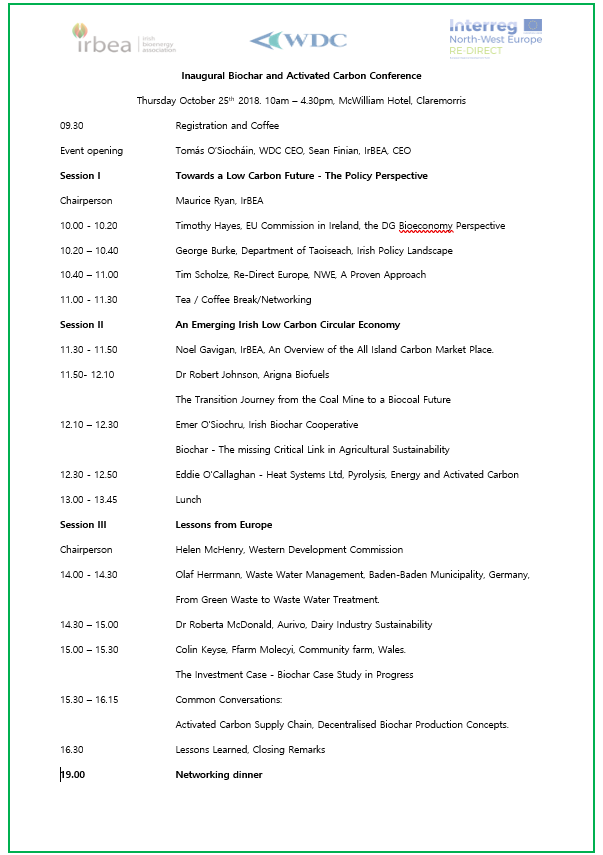



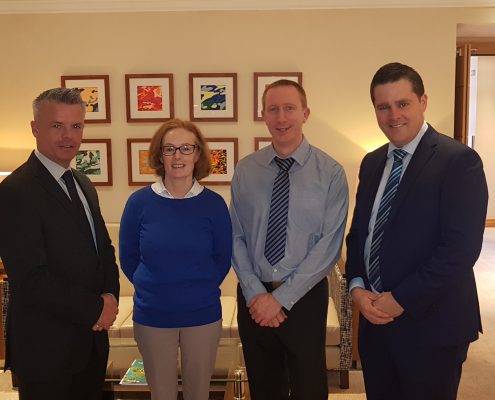 Sean Finan here on the right with Des O’Toole (IrBEA President), Teresa O’Brien(Communications Manager)
Sean Finan here on the right with Des O’Toole (IrBEA President), Teresa O’Brien(Communications Manager)
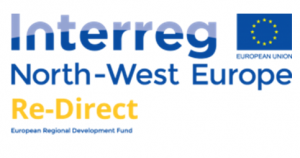 Tour Route
Tour Route